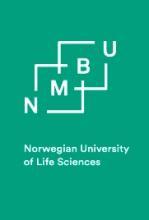Resource information
This paper is about land tenure relations among the matrilineal and patrilineal cultures in Malawi. Data from the National Agricultural and Livestock Census are used to characterize marriage systems and settlement and landholding patterns for local communities. Marriage systems correspond to customary land tenure patterns of matrilineal or patrilineal land holding. The differences between the two major ways of land holding represent a particular challenge for land reforms intending to unify rules for land tenure and land devolution.
The paper discusses the problems of formalisation and the idea of maintaining the diversity. If diversity is not respected there is a chance that some sections of society, especially communities with matrilineal land holding, might be victims of formalization. Based on analogy of the resilience of the patrilineal land holding system in Norway it is argued that a democratic system will have difficulty removing the preferential rights of linage members and it is recommended that the existing land rights are formally recognized and circumscribed by fair procedures.
In a situation of diversity one goal of a well-designed land holding system should be to ease the transitions of the diverse customary tenure systems towards systems adapted to the requirements of a modern large scale society rather than to a unified national system.



